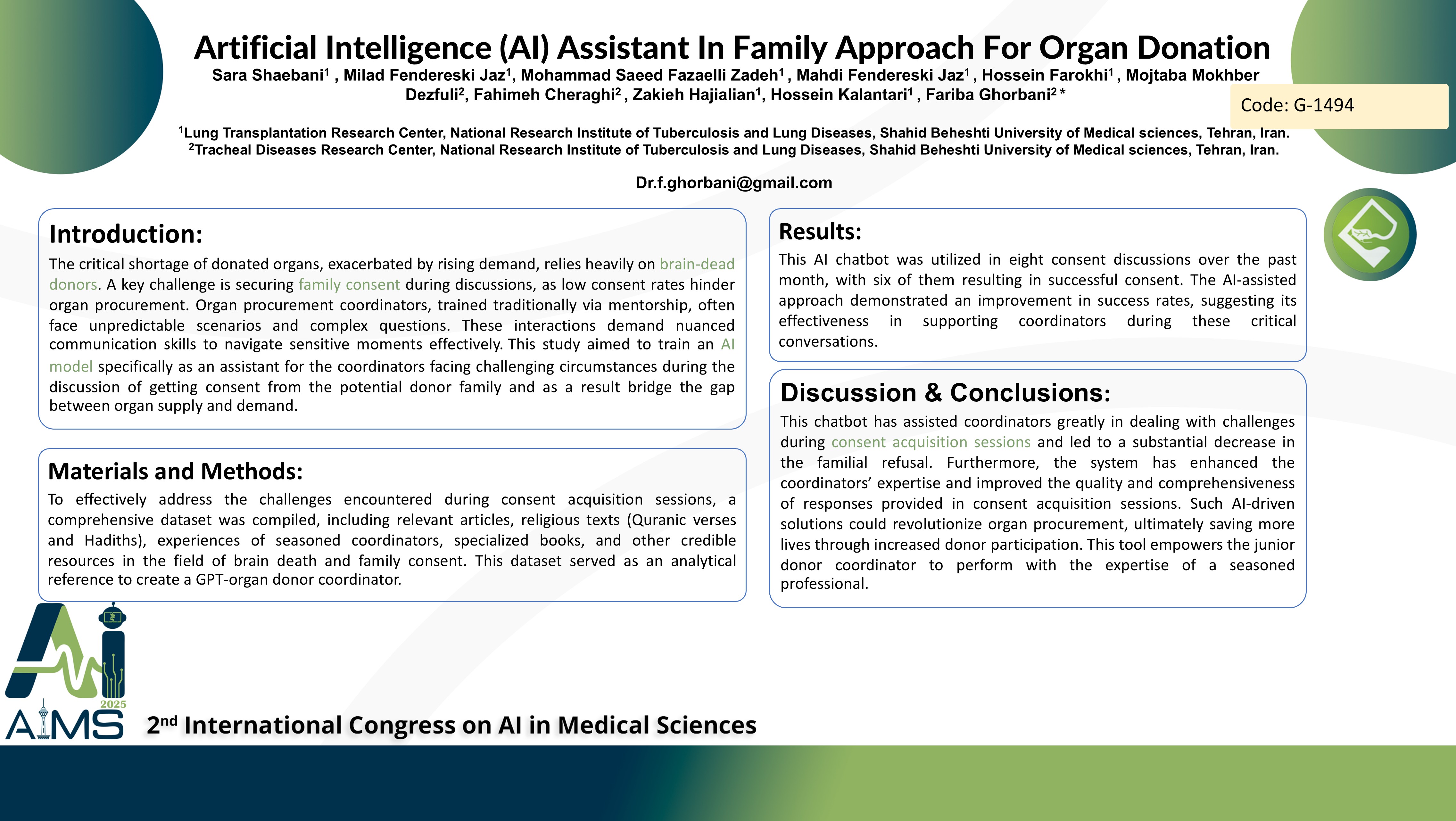Artificial Intelligence (AI) Assistant In Family Approach For Organ Donation
Code: G-1494
Authors: Sara Shaebani ℗, Milad Fendereski Jaz, Fariba Ghorbani *, Mohammad Saeed Fazaelli Zadeh, Mahdi Fendereski Jaz, Hossein Farokhi, Mojtaba Mokhber Dezfuli, Fahimeh Cheraghi, Zakieh Hajialian, Hossein Kalantari
Schedule: Not Scheduled!
Tag: Intelligent Virtual Assistant
Download: Download Poster
Abstract:
Abstract
Background: The critical shortage of donated organs, exacerbated by rising demand, relies heavily on brain-dead donors. A key challenge is securing family consent during discussions, as low consent rates hinder organ procurement. Organ procurement coordinators, trained traditionally via mentorship, often face unpredictable scenarios and complex questions. These interactions demand nuanced communication skills to navigate sensitive moments effectively. Aim: We aimed to train an AI model specifically as an assistant for the coordinators facing challenging circumstances during the discussion of getting consent from the potential donor family and as a result bridge the gap between organ supply and demand. Method: To effectively address the challenges encountered during consent acquisition sessions, a comprehensive dataset was compiled, including relevant articles, religious texts (Quranic verses and Hadiths), experiences of seasoned coordinators, specialized books, and other credible resources in the field of brain death and family consent. This dataset served as an analytical reference to create a GPT-organ donor coordinator. Result: We utilized this AI chatbot in eight consent discussions over the past month, with six of them resulting in successful consent. The AI-assisted approach demonstrated an improvement in success rates, suggesting its effectiveness in supporting coordinators during these critical conversations. Conclusion: This chatbot has assisted coordinators greatly in dealing with challenges during consent acquisition sessions and led to a substantial decrease in the familial refusal. Furthermore, the system has enhanced the coordinators’ expertise and improved the quality and comprehensiveness of responses provided in consent acquisition sessions. Such AI-driven solutions could revolutionize organ procurement, ultimately saving more lives through increased donor participation. This tool empowers the junior donor coordinator to perform with the expertise of a seasoned professional.
Keywords
Brain Death, Artificial Intelligence, Organ Donation
